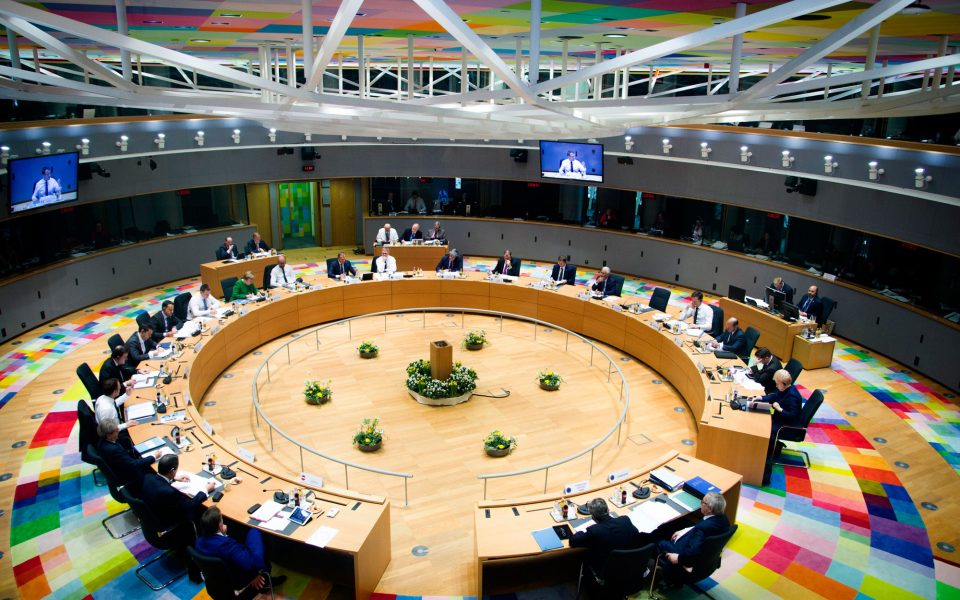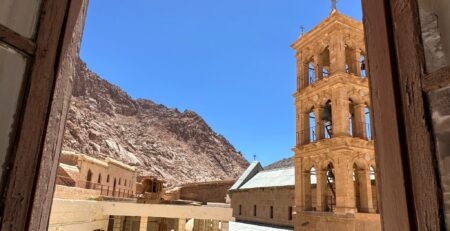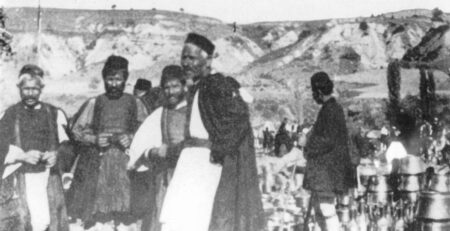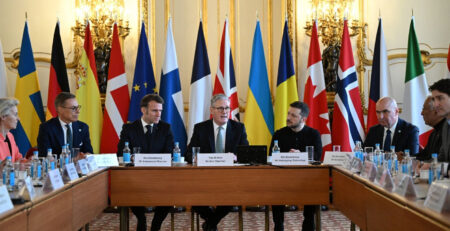Η ΕΕ μπορεί να είναι πιο ισχυρός μοχλός έναντι της Τουρκίας από τις ΗΠΑ
Του Robert Ellis*
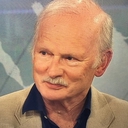
H Ευρωπαϊκή Ένωση βρίσκεται ενώπιον ενός κρίσιμου ζητήματος, το οποίο, όπως υποστηρίζει ο Robert Ellis, είναι πως καθίστανται πιο ξεκάθαρες η επιθετικότητα και η οικοδόμηση της αυτοκρατορίας της Τουρκίας του Ερντογάν.
Αν και η σύνοδος του Ευρωπαϊκού Συμβουλίου έχει αναβληθεί για μια εβδομάδα έως τις αρχές Οκτωβρίου, η κατάσταση παραμένει αμετάβλητη, αναφέρει και παραπέμπει στον Josep Borrell, ο οποίος εκτίμησε ότι η Ευρώπη έρχεται αντιμέτωπη με τρεις αναδυόμενες αυτοκρατορίες, τη Ρωσία, την Κίνα και την Τουρκία, και η τελευταία αποτελεί άμεσο πρόβλημα.
Στο άρθρο του στο euractiv ο Robert Ellis αναφέρει ότι ο Ζακ Ατάλι, σύμβουλος του αείμνηστου Γάλλου Προέδρου François Mitterand, έχει ήδη τοποθετήσει την επικείμενη Σύνοδο Κορυφής «σε ιστορικό πλαίσιο», γράφοντας στο Twitter: «Πρέπει να ακούσουμε τι λέει ο [πρόεδρος της Τουρκίας] Ερντογάν, να τον πάρουμε πολύ σοβαρά και να είμαστε έτοιμοι να δράσουμε με κάθε τρόπο. Εάν οι προκάτοχοί μας είχαν λάβει σοβαρά υπόψη τις ομιλίες του Führer από το 1933 έως το 1936, θα μπορούσαν να είχαν εμποδίσει αυτό το τέρας να συσσωρεύσει τους τρόπους και τα μέσα για να κάνει ό,τι είχε ανακοινώσει ».
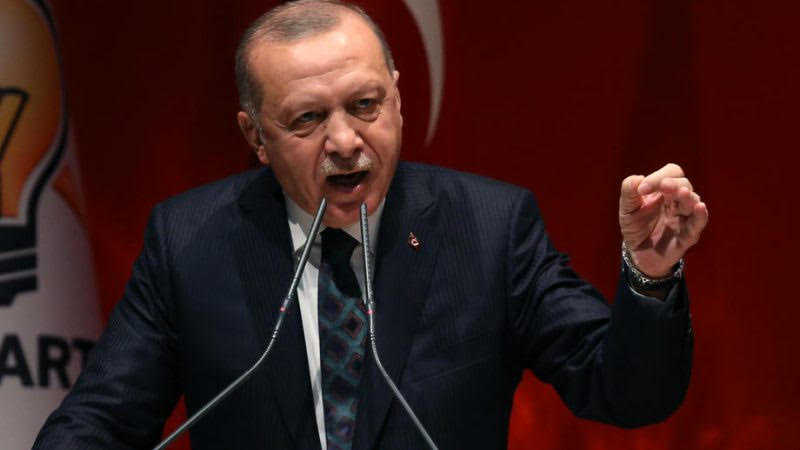
Ο Ερντογάν , υποδεικνύει ο Robert Ellis, προειδοποίησε ότι «η Τουρκία έχει την πολιτική, οικονομική και στρατιωτική δύναμη να σκίσει τους ανήθικους χάρτες και έγγραφα [δηλ. η συνθήκη της Λωζάνης του 1923] που της επιβλήθηκαν».
Στο άρθρο του ο Ellis, μεταξύ άλλων, αναφέρει:
*Η Τουρκία ζήτησε διάλογο και δίκαιη μεταχείριση. Η παραβίαση της ΑΟΖ της Κύπρου (Αποκλειστική Οικονομική Ζώνη) είναι αναμφισβήτητη, αλλά το ζήτημα της διαίρεσης του νησιού παραμένει άλυτο.
*Υπάρχει επίσης το ερώτημα, εάν ένα μικρό νησί με 200 κατοίκους μπορεί να διεκδικήσει μια αποκλειστική οικονομική ζώνη.
*Η Τουρκία επεκτάθηκε στην αναζήτηση του «lebensraum».
*Η αχίλλειος πτέρνα της Τουρκίας είναι η οικονομία. Οι ξένοι επενδυτές φεύγουν, ο Covid-19 έχει πλήξει τον τουρισμό και ο Moody’s υποβάθμισε την πιστοληπτική ικανότητα της σε B2, θέτοντας την Τουρκία σε ίδιο επίπεδο με την Αίγυπτο, την Τζαμάικα και τη Ρουάντα.
*Σε μια εκδήλωση στο Brookings Institution στην Ουάσινγκτον, με τίτλο «Η νέα γεωπολιτική της Τουρκίας και της Δύσης», ένας εισηγητής επεσήμανε ότι η ΕΕ μπορεί να είναι πιο ισχυρός μοχλός έναντι της Τουρκίας από τις ΗΠΑ, λόγω της εξάρτησης της Τουρκίας από το ευρωπαϊκό εμπόριο και τις Foreign Direct Investment.
*Επομένως, η επιβολή κυρώσεων μπορεί να αποτελέσει αποτελεσματική απάντηση. Ωστόσο, αυτό απαιτεί ομοφωνία, η οποία οδήγησε σε αδιέξοδο στη συνεδρίαση του Συμβουλίου Εξωτερικών Υποθέσεων, στις 21 Σεπτεμβρίου. Το σχέδιο ήταν να επιβληθούν κυρώσεις στη Λευκορωσία, αλλά αυτό εμποδίστηκε από την Κύπρο, η οποία επέμενε σε παράλληλα μέτρα κατά της Τουρκίας.
*Ο κίνδυνος είναι ότι η Ευρωπαϊκή Ένωση, στην επιθυμία της να κατευνάσει έναν ισχυρό γείτονα, μπορεί να κάνει το ίδιο λάθος με τον πρωθυπουργό της Βρετανίας, Neville Chamberlain, το 1938.
*Παραθέτουμε ολόκληρο το άρθρο στα αγγλικά:
24 September, 2020
As the aggression and empire-building of Erdogan’s Turkey becomes clearer, the EU faces a watershed moment, argues Robert Ellis.
Although the meeting of the European Council has been postponed for a week until the beginning of October, the situation remains unchanged. As the EU’s foreign affairs representative Josep Borrell has pointed out, Europe is confronted with three resurgent empires, Russia, China and Turkey, and the latter constitutes an immediate problem.
Jacques Attali, an adviser to the late French President François Mitterand, has already placed the summit in a historical context.
He tweeted: “We have to hear what [Turkey’s president] Erdogan says, take it very seriously and be prepared to act by all means. If our predecessors had taken the Führer’s speeches seriously from 1933 to 1936, they could have prevented this monster from accumulating the ways and means to do what he had announced.”
The warning is not inappropriate. In 1936 German troops reoccupied the Rhineland in defiance of the Versailles and Locarno treaties, but Britain and France did nothing.
Likewise, in January 2018 Turkey invaded and occupied the Kurdish enclave of Afrin in north-western Syria, claiming its sole objective was to fight terrorism and protect its borders. The EU’s reaction was negligible, but Operation Olive Branch boosted President Erdogan’s standing at home.
Last October Turkey launched a similar offensive, Operation Peace Spring, against the Kurdish area of Rojava in north-eastern Syria. In this case, Turkey invoked the right of self-defence according to Article 51 of the UN Charter. In both cases, Turkish troops were supported by jihadist militias, who called themselves the Syrian National Army.
However, a UN Commission of Inquiry has documented war crimes committed by the SNA, including murder, torture, rape and seizure of property.
President Erdogan has made his intentions plain.
“Turkey has become a powerful regional actor at a scale never seen in its recent history. Our country’s position in global power index assessments is increasing with each passing year. We are now closer than ever to our goal of a great and strong Turkey. Once we safely carry our country to 2023, we will have made Turkey an unstoppable power.”
This is reflected in the fact that Turkey has troops in 13 countries (Cyprus, Syria, Libya, Iraq, Azerbaijan, Somalia, Qatar, Afghanistan, Albania, Lebanon, Bosnia and Herzegovina, Kosovo and Sudan).
There is also the maritime dimension. Turkey’s ‘Blue Homeland” naval doctrine lays claim to a vast swathe of the Eastern Mediterranean, the Aegean and the Black Sea, which has brought Turkey into conflict with is neighbours, Greece and Cyprus.
In July, it almost came to war between Greece and Turkey over the small island of Kastellorizo off the south coast of Turkey.
France, with a display of hard power, has not been slow to react. President Emmanuel Macron has declared his solidarity with Greece and Cyprus and despatched fighter jets, a frigate and an aircraft carrier to the region. It has also come to a war of words.
Turkey’s foreign minister Mevlut Cavusoglu has accused France of “acting like bullies” and President Erdogan told Macron, “don’t mess with Turkey”.
Turkey feels fenced in and excluded by the creation of the Eastern Mediterranean Gas Forum and the MED7 (Cyprus, France, Greece, Italy, Malta, Portugal and Spain).
The MED7 at its recent meeting in Corsica expressed its determination to “use all adequate means at the disposal of the European Union” in response to Turkey’s confrontational actions. Macron has also called for a Pax Mediterranea.
In turn, in an echo of Hitler’s speech in Berlin’s Sportpalast in September 1938, where he laid claim to the Sudetenland, Erdogan has warned that “Turkey has the political, economic and military power to tear up the immoral maps and documents [i.e. the Lausanne treaty of 1923] imposed on it”.
At the same time, Turkey has called for a dialogue and fair treatment. Its infringement of Cyprus’ EEZ (Exclusive Economic Zone) is unquestionable, but the overhanging issue of the island’s division remains unsolved. There is also the question of whether a small island with 200 inhabitants can lay claim to an exclusive economic zone.
Turkey has in its search for ‘lebensraum’ extended itself. As Turkey’s former ambassador to the US, Namik Tan, has commented, ordering the Turkish army into Syria and engaging in military operations in Libya as well as carrying out gunboat diplomacy with France and Greece is difficult to sustain, especially in view of Turkey’s economic situation.
This is Turkey’s Achilles heel. Foreign investors are fleeing, Covid-19 has crippled tourism and Moody’s has downgraded Turkey’s credit rating to B2, putting Turkey on a level with Egypt, Jamaica and Rwanda.
At an event at the Brookings Institution in Washington on “The new geopolitics of Turkey and the West”, a panellist observed that the EU has a greater leverage over Turkey than the US because of Turkey’s dependence on European trade and FDI.
Therefore the application of sanctions can be an effective response. However, this will require unanimity, which led to a deadlock in the meeting of the Foreign Affairs Council on 21 September. The plan was to impose sanctions on Belarus, but this was blocked by Cyprus, which insisted on parallel measures against Turkey.
The danger is that the European Union, in its desire to appease a powerful neighbour, can make the same mistake as Britain’s prime minister, Neville Chamberlain, did in 1938 and dismiss the whole issue as “a quarrel in a faraway country between people of whom we know nothing”.
*Ο
Ο Robert Ellis είναι μέλος του συμβουλευτικού συμβουλίου στο Vocal Europe, ένα think tank που εδρεύει στις Βρυξέλλες
αφιερωμένο στην έρευνα σχετικά με τις διπλωματικές δράσεις της ΕΕ, την πολιτική διεύρυνσης και τη δημοκρατία.
είναι μέλος του συμβουλευτικού συμβουλίου στο Vocal Europe, ένα think tank, που εδρεύει στις Βρυξέλλες και ασχολείται με την έρευνα σχετικά με τις διπλωματικές δράσεις της ΕΕ, την πολιτική διεύρυνσης και τη δημοκρατία.
-Τα ενυπόγραφα κείμενα απηχούν τις απόψεις των συγγραφέων τους

